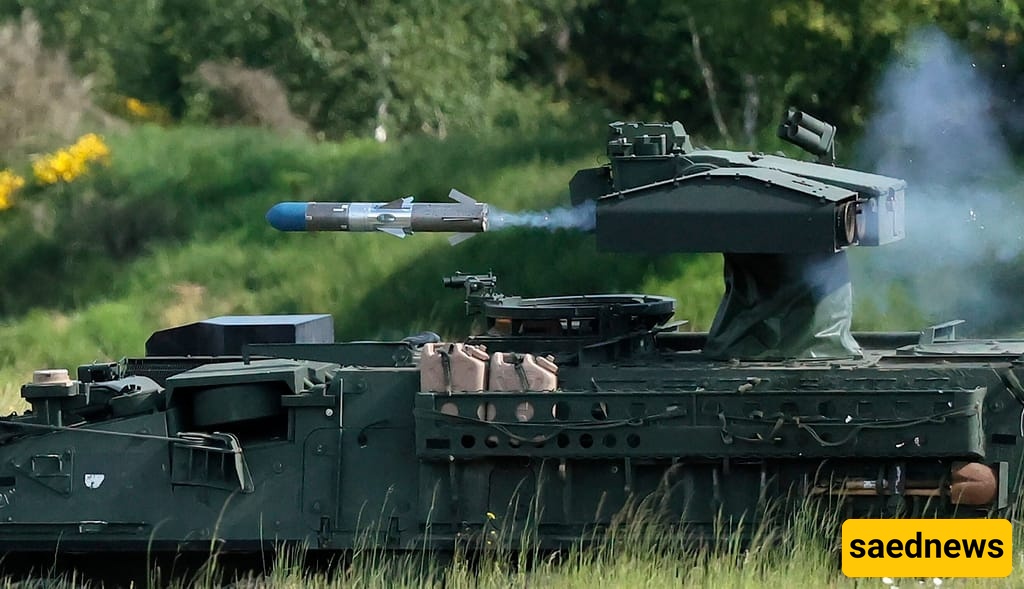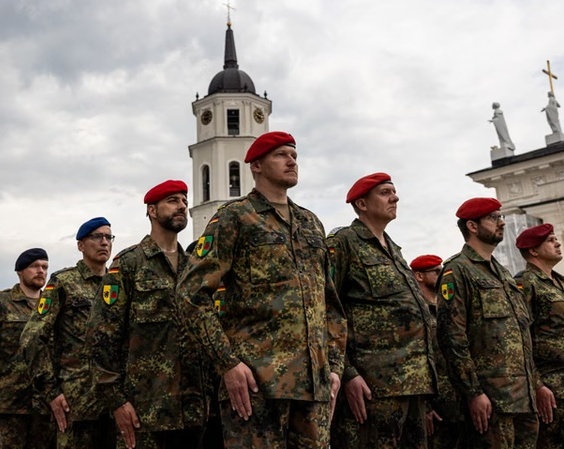SAEDNEWS: The Ukraine war and the resulting security instability on the Green Continent have pushed Germany toward redefining its position as Europe’s leading military power. However, Berlin’s deep economic ties with Beijing and China’s presence as an influential actor on the international stage could make this path challenging.

According to Saed News, quoting Politico, the Ukraine war and recent security developments in Europe have pushed Germany toward redefining its position as a leading military power on the continent. The post-World War II history, military limitations, and focus on economic foreign policy had caused Germany to distance itself from a direct military role in international politics for decades. However, recent crises, especially Russia’s invasion of Ukraine, have shown that such limitations no longer meet Europe’s security needs. Germany now faces NATO pressure to increase its defense budget and develop its armed forces, aiming not only to be a powerful economic actor but also a reliable security pillar in Europe.

These efforts include extensive armament programs and military modernization, with past years witnessing increased defense budgets and a focus on advanced technologies. Germany is strengthening its air, naval, and land capabilities and intends to play a deterrent role within NATO against regional and transregional threats. At the same time, the Ukraine crisis has shown that Europe’s security can no longer rely solely on treaties and diplomatic policies, highlighting the need for more active military engagement from Germany and other European countries.
However, Germany’s path to becoming Europe’s military power faces significant complexities. One of the main challenges is its extensive economic relations with China. As Germany’s main trading partner, China plays an important role in the country’s industrial economy. Germany’s dependence on China in trade, investment, and industrial supply chains means that any strict security or military decisions against China’s interests would have tangible economic repercussions for Germany. This conflict between security and economy is one of the main dilemmas of Berlin’s foreign policy, and managing it requires smart diplomacy and a balanced strategy.
The complexity lies in the fact that China is not only an economic partner but also an influential global actor, and its policies in Asia and Europe can directly affect Germany’s position. Any direct confrontation with China, including supporting Asian countries aligned with the West or adopting strict economic stances, could threaten Germany’s long-term interests. Therefore, Berlin must adopt a strategy that ensures Europe’s security while preserving its vital economic relations with China.
To achieve this balance, Germany seeks to strengthen multilateral cooperation within NATO and the European Union, so that the burden of defense responsibilities is shared, and national decision-making pressures are reduced. At the same time, efforts to develop domestic technologies and reduce dependence on sensitive imports from China—especially in advanced industries and critical infrastructure—are on the agenda. These measures indicate that Germany is trying to manage both security and the economy simultaneously, but the path ahead is full of domestic and external challenges.
The future outlook indicates that Germany’s role as Europe’s military power is likely to solidify in the coming decades, but success on this path depends on the country’s ability to manage relations with China and other key global actors. Any misstep in this balance could affect not only Germany’s role in European security but also its economic position and international influence. Therefore, Germany’s foreign and defense policy in the coming years will require precise decision-making, regional cooperation, and smart management of economic relations with powerful global actors.

